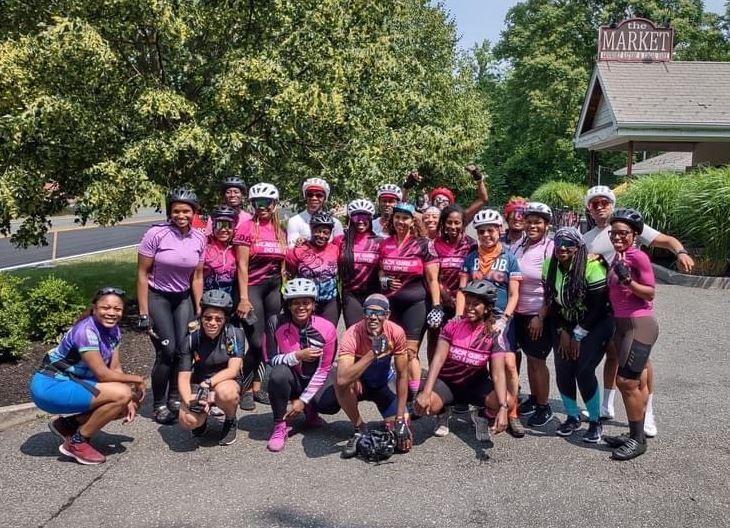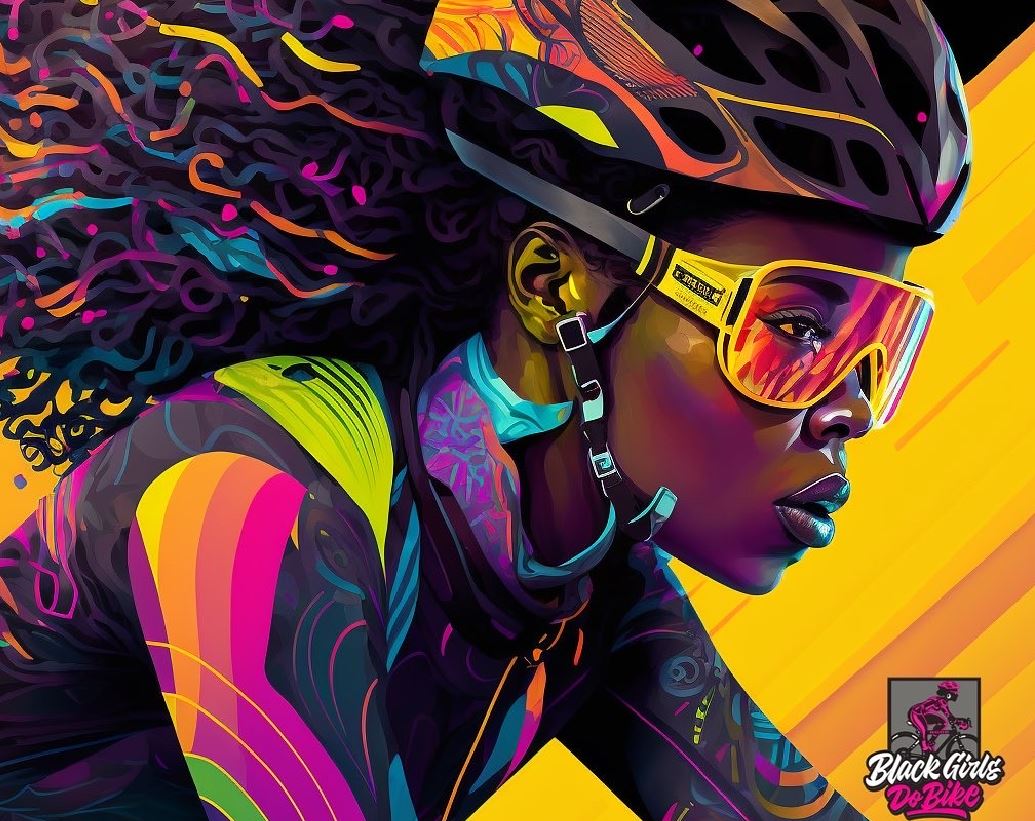Black Girls Do Bike NYC isn’t just an organization. It’s a movement committed to infusing the cycling world with melanin.
As the leader of the New York City chapter of Black Girls Do Bike, Lisa Gillespie curates a supportive space for riders of all experience levels. She’s done rides on paved roads, gravel and through the mountains. At age 55, she completed her first triathlon, and eagerly imparts her knowledge to others.
Gillespie is one of the many “sheroes” who organize bike rides. The Black Girls Do Bike NYC chapter is one of 100+ chapters in the Black Girls Do Bike network. The original concept was conceived by Monica Garrison in 2013, and it has grown exponentially in the last decade. Most chapters are based in the U.S., with additional ones in Antigua and England.
Travel Noire caught up with Gillespie to discuss why diversity in cycling is so critical.

Travel Noire: You come from a medical background, so you know the benefits of exercise. Can you elaborate on why you think it’s important?
Lisa Gillespie: I’m a nurse and in addition to that, I hold certifications in health and fitness from the American College of Sports Medicine. Exercise is really important for the health of any community. Cycling is a great activity because it’s ‘open-chain,’ meaning your feet don’t push into the earth. Consequently, there’s no force through your joints. It’s a sport people can do into their 80s and 90s, because it’s forgiving on your joints.
TN: What makes Black Girls Do Bike NYC so special?
LG: There’s a spiritual benefit to the community, and many relationships develop that otherwise wouldn’t. Black Girls Do Bike NYC does a lot of community outreach. At Summer Streets, we showed people how to check tire pressure, pump their tires and do an ‘ABC’ quick check. When people see us in our gear, they know we’re a group, which generates interest. We’re a bunch of sisters who support each other.

TN: Do you have plans to do the New York City Triathlon?
LG: We recently partnered with Life Time, which hosts that triathlon. We’ll have about 8 people competing, including me. It’s amazing that we can draw people into these sports. Representation matters. When we see each other competing, we realize that it’s attainable.
TN: Do Black Girls Do Bike members partake in cycling events outside of New York?
LG: Last year, several of us traveled to Kansas to participate in Unbound Gravel, a very exciting and somewhat scary ride. We went to Atlanta for the One Love century ride. At an event in Colorado, there were thousands of athletes, but only a handful of Black ones and even fewer women. We’re changing that. We start our gravel clinic for Black Girls Do Bike in September. I’m scouting a trip for us in Italy, and next year, we’re going to Jamaica. Our bikes literally take us everywhere.
TN: How can the public support Black Girls Do Bike NYC?
LG: People can support us by showing up to events and donating. We’re 100 percent volunteer based and membership is free. We offer a variety of workshops through partnerships. We have monthly beginner rides, as well as courses on bike mechanics. In the winter, we offer yoga and strength training for cyclists. This year, we had a seminar on Black women in multi-sports, and out of that came at least 10 new people. My preferred method of outreach is to go up to any Black woman I see on a bike and ask if I know her. If I don’t, then I invite her to ride with us.





